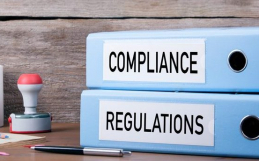In October 2017, the Federal Court of Australia ordered three related retail entities to pay fines and penalties totalling $750,000 for misrepresenting their consumer’s rights to repairs, replacements, and refunds. The three companies, which are part of MSY Group, a computer and IT retailer, admitted that they had misrepresented consumer rights on their website, through oral statements, and in emails. This is the second time MSY Group has been penalised by the Federal Court, as in 2011 they were fined $203,000 for engaging in similarly misleading and deceptive conduct.
This MSY Group case is a timely reminder for all retailers to ensure that they understand their rights and responsibilities under the Australian Consumer Law (ACL). Especially as the Christmas season and January sale period approaches with consumer spending increasing as people head out to buy gifts and find themselves a deal in the sales. Typically during this period, requests for returns, replacements, and refunds also increases.
A summary of some of a retailer’s rights and responsibilities to a consumer, as that term is defined in the ACL, are set out below.
General Rights & Responsibilities
- Goods must be of acceptable quality, and as presented in any descriptions (both verbal and written), labels, presentations, and advertising.
- Where a service is provided, it must be carried out with due care and skill.
- Goods and services must be fit for any disclosed purpose and it is a retailer’s responsibility to have spare parts and/or repair facilities available unless the consumer has been clearly informed overwise.
- If a retailer is presented with a faulty product, the retailer must assess the fault in accordance with the requirements of the ACL, as the retailer cannot simply refer the consumer to the product’s manufacturer or importer for a remedy.
- For a minor fault, the retailer has the option to offer a repair, replacement, or refund. For a major fault, the consumer has the right to choose between a repair, replacement or refund. The consumer may also be entitled to compensation. By way of background, a major fault is one where the consumer would not have made the purchase, had they been aware of the fault. A minor fault is all other faults which do not fit within category of a major fault.
Exceptions
Circumstances where it is perfectly acceptable to refuse a repair, refund, or replacement include the following:
- a consumer does not have the right to exchange or refund for a simple change of mind, if they found the product or service cheaper somewhere else, or decided they had no use for it;
- a consumer does not have the right to an exchange, refund, or repair if:
-
- they have misused the product and caused the fault or problem;
- a sufficient amount of time has passed for the fault, problem, or issue to be caused by reasonable and normal wear and tear, and by having regard to the cost of the item;
- a consumer does not have the right to a refund or have serviced performed again if they insisted a service be performed in a particular way, against the retailer’s advice, or were unclear about the services they needed.
Please bear in mind that consumer guarantees do not apply to products bought at auction, from a one-off private seller, or ‘as is’, so long as that ‘as is’ condition of sale is clearly known and accepted.
As a retailer or supplier, what can I do to minimise the risk?
- Make sure your terms and conditions of sale have been reviewed and are up to date.
- Check your returns and refunds policy is compliant with Australian Consumer Law.
Ensure all personnel and sales staff are aware of the business’s obligations under the law, and understand that all representations about the business’ products and services must match the reality.
At Bryks Lawyers we have extensive experience in matters relating to Australian Competition and Consumer Law. Talk to us today!







